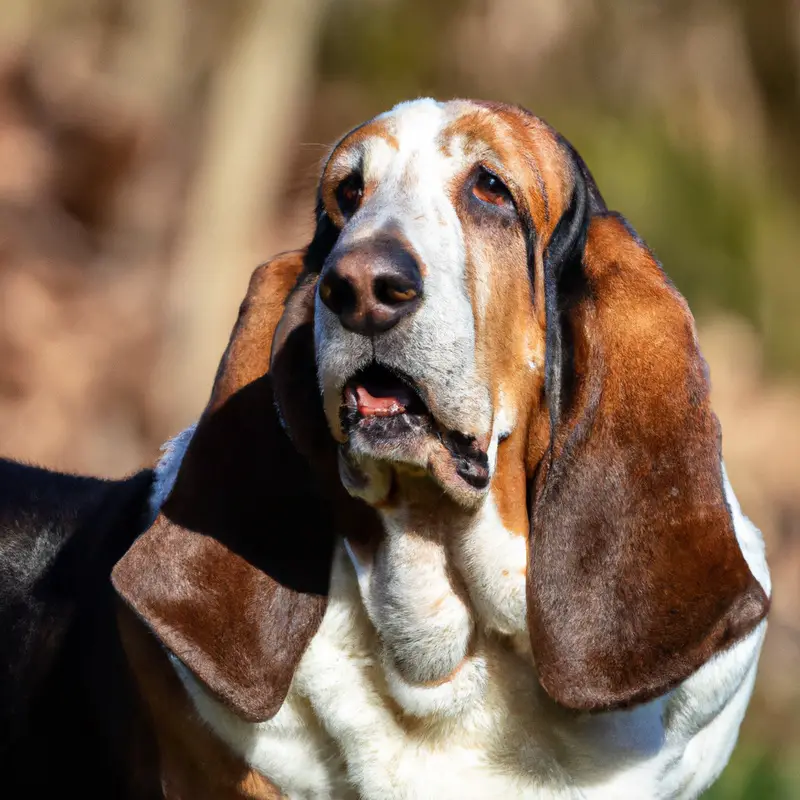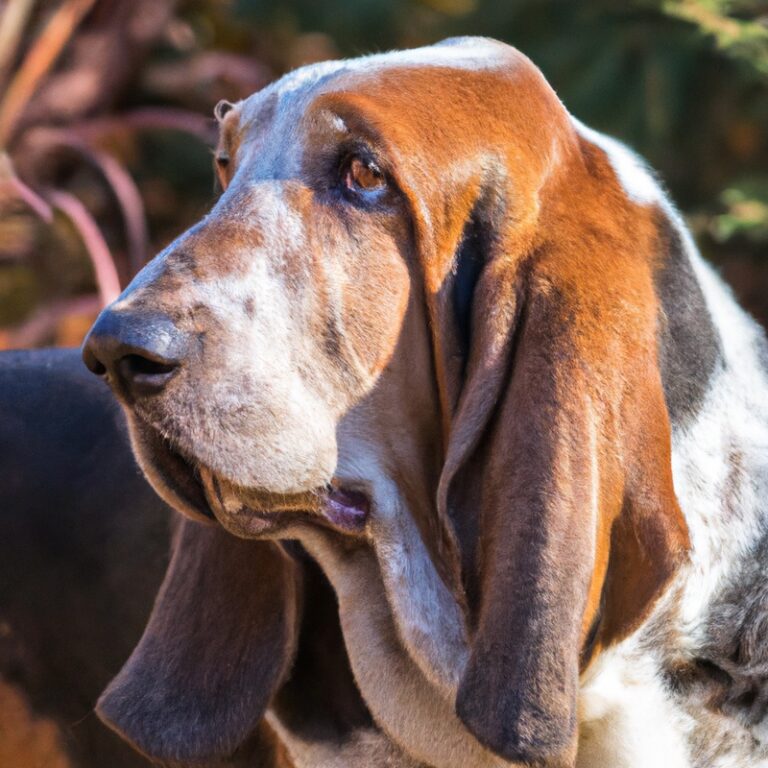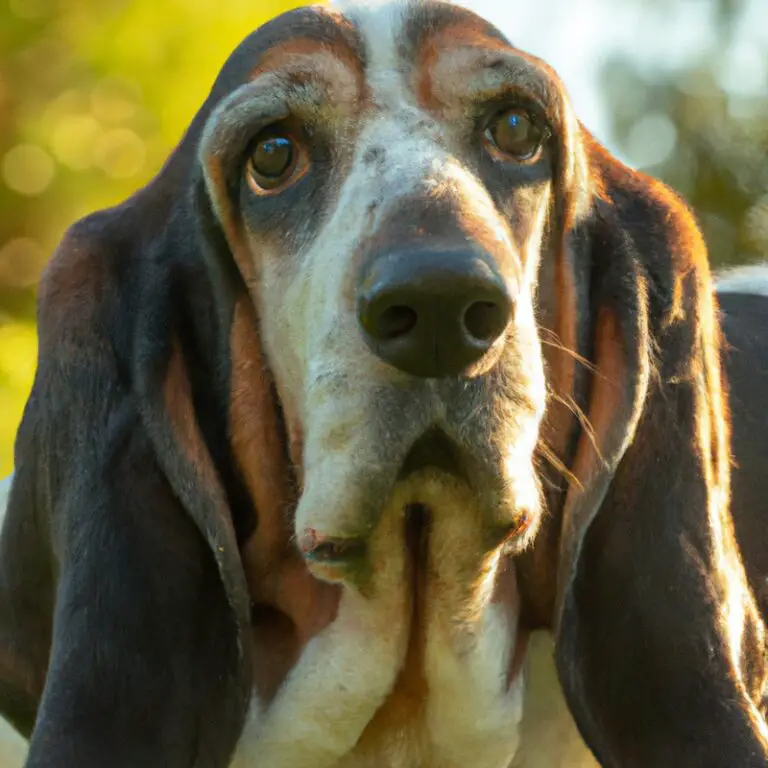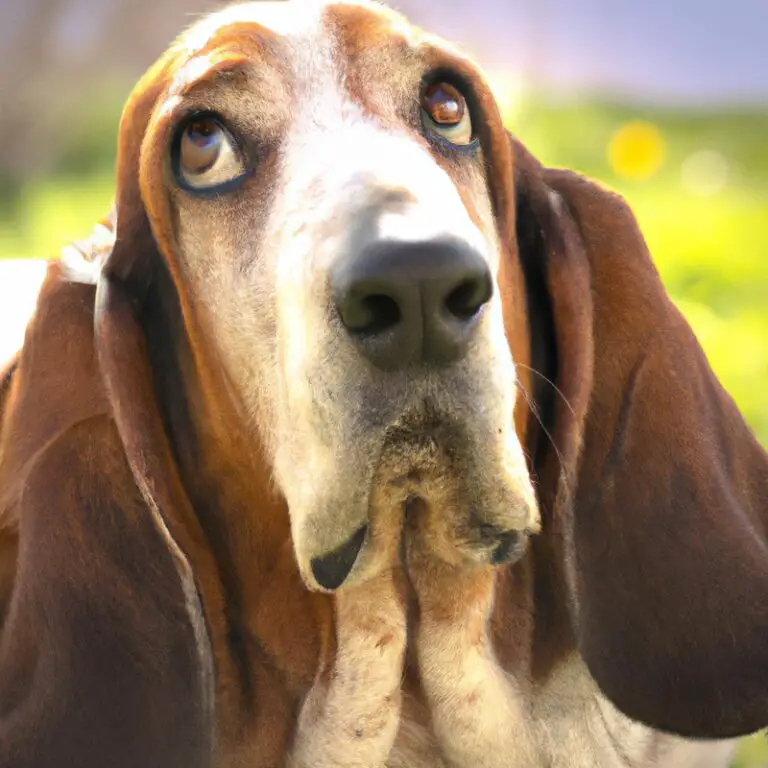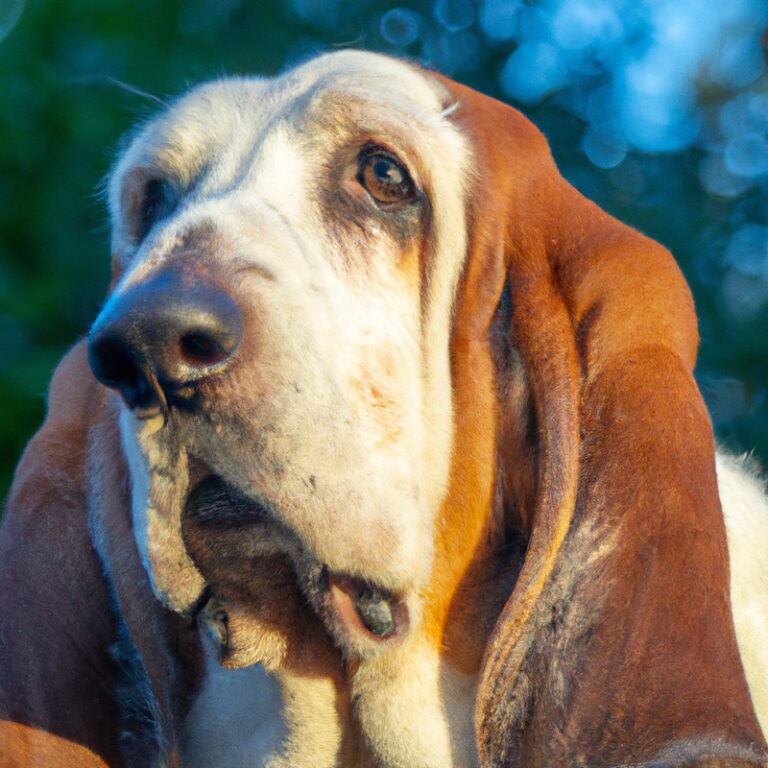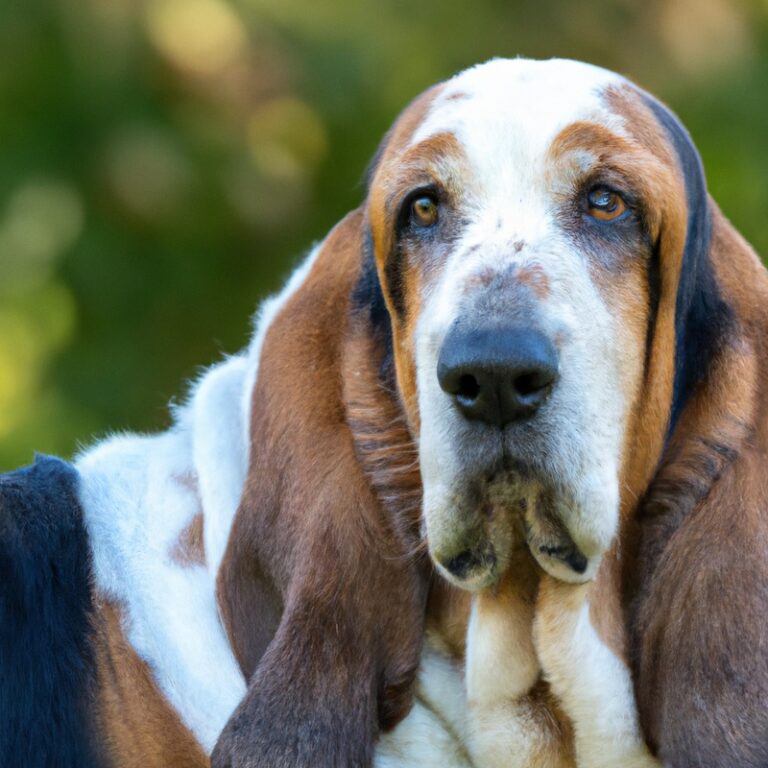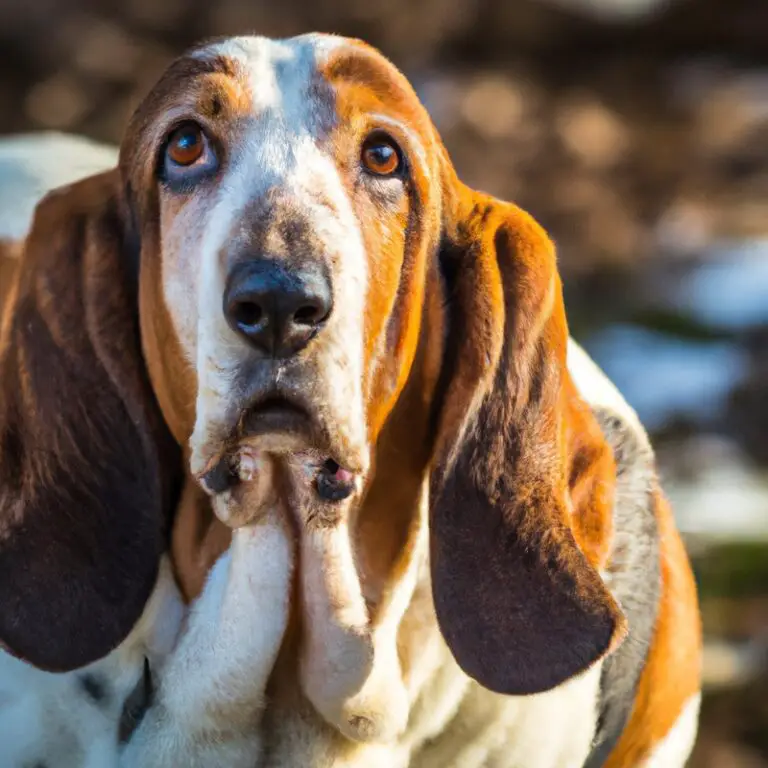How Do Basset Hounds Behave Around Unfamiliar Animals?
Key Takeaways:
- Basset Hounds tend to have a laid-back and friendly demeanor when encountering unfamiliar animals.
- They may exhibit curiosity and approach other animals cautiously.
- Basset Hounds are generally social and can get along well with other pets if properly introduced and supervised.
- However, they have a strong hunting instinct and may chase small animals, so caution should be exercised in certain situations.
Imagine this: you’re walking your Basset Hound in the park, and suddenly a squirrel scurries past. What happens next?
Are you in for a chase, a friendly encounter, or maybe even some unexpected aggression?
As an expert in understanding canine behavior, I can tell you that how Basset Hounds behave around unfamiliar animals is a fascinating topic. These adorable droopy-eared dogs have their own unique temperament and instincts when it comes to encountering new furry friends.
In this blog article, we’ll dive deep into the general behavior and temperament of Basset Hounds, factors that influence their behavior towards unfamiliar animals, common behaviors you may observe, and tips for managing their behavior in these situations.
Get ready to uncover the secrets to navigating these encounters and ensuring a harmonious interaction between your Basset Hound and other animals!
| Behavior of Basset Hounds around Unfamiliar Animals | Description |
|---|---|
| 1. Approach | Basset Hounds are generally friendly and approach unfamiliar animals with curiosity and a generally non-aggressive nature. |
| 2. Interaction | Basset Hounds may try to initiate play or sniff around unfamiliar animals, but their behavior is usually gentle and non-threatening. |
| 3. Tolerance | Basset Hounds are known for their patience and tolerance, but may become annoyed or wary if the unfamiliar animal displays aggressive behavior towards them. |
| 4. Training | Proper training and socialization can help Basset Hounds behave appropriately around unfamiliar animals, reducing the likelihood of any negative interactions. |
Understanding Basset Hound Behavior
General Behavior and Temperament of Basset Hounds
Basset Hounds are known for their friendly and laid-back temperament.
They tend to be gentle, calm, and affectionate dogs.
They have a strong sense of smell and are known to be quite stubborn at times.
Bassets can also be quite vocal, especially when they want attention or are on a scent trail.
Overall, they make great family pets and are known for their lovable and easygoing nature.
Basset Hounds and Unfamiliar Animals
Factors Influencing Basset Hound Behavior Towards Unfamiliar Animals
Several factors can influence a Basset Hound’s behavior towards unfamiliar animals.
One key factor is their level of socialization and exposure to different animals during their early development stages.
Basset Hounds that have been properly socialized are typically more confident and comfortable around unfamiliar animals.
Another factor is the individual temperament of the Basset Hound.
Some dogs may naturally be more friendly and accepting, while others may be more cautious or even reactive towards unfamiliar animals.
It’s important to note that each Basset Hound is unique and may respond differently in various situations.
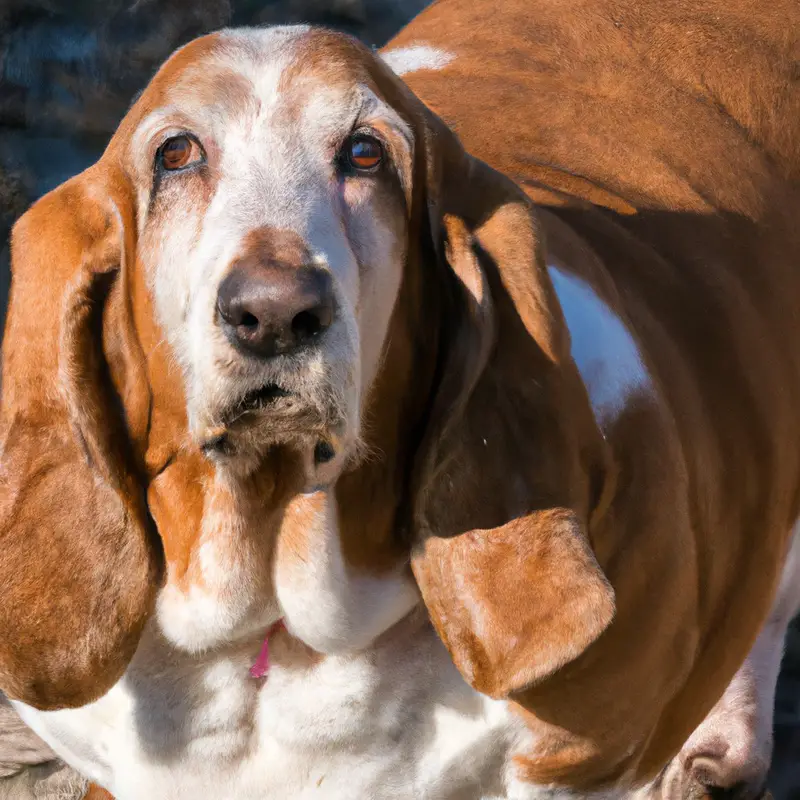
Socialization and Training for Basset Hounds
Socialization and training are essential for Basset Hounds. When it comes to socialization, exposing them to various animals, people, and environments helps them become more comfortable and well-adjusted.
Positive reinforcement training techniques work best as Basset Hounds are sensitive dogs.
Consistency and patience during training sessions are crucial. Keep in mind that each Basset Hound is unique, so tailor the training to their specific needs.
Seek professional help if you encounter any difficulties.
With proper socialization and training, your Basset Hound can develop into a well-rounded and friendly companion.
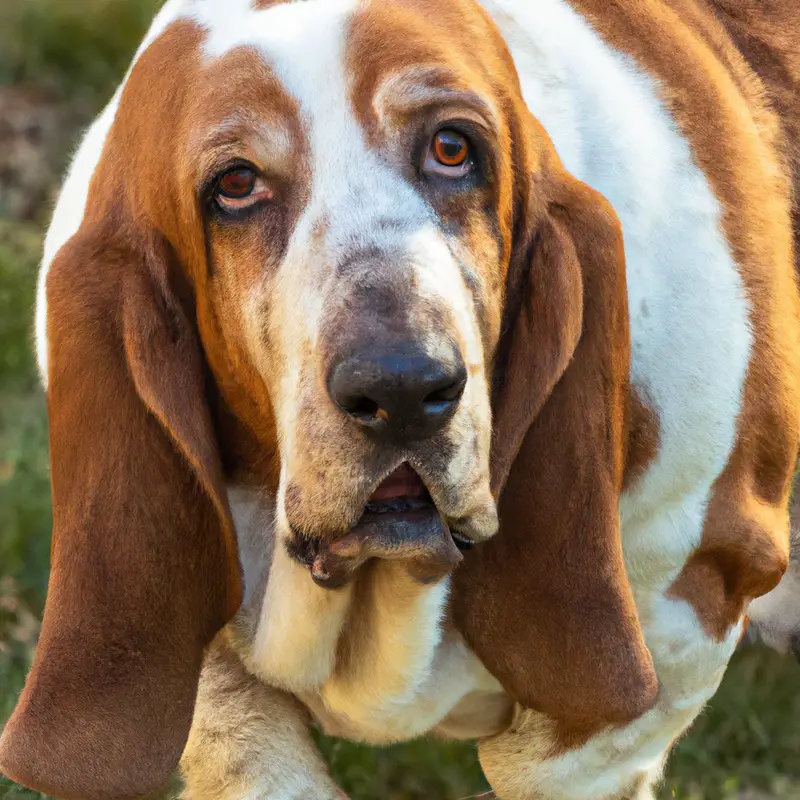
Basset Hound’s Response to Different Types of Unfamiliar Animals
Basset Hounds may react differently to various unfamiliar animals. Some Bassets may show curiosity and want to investigate, while others may be reserved or even wary.
It’s important to note that every dog is unique, and their responses can vary.
Bassets may be more inclined to chase small animals due to their hunting instincts. However, with proper socialization and training, Basset Hounds can learn to behave appropriately around all types of unfamiliar animals, minimizing the potential for conflicts and promoting positive interactions.
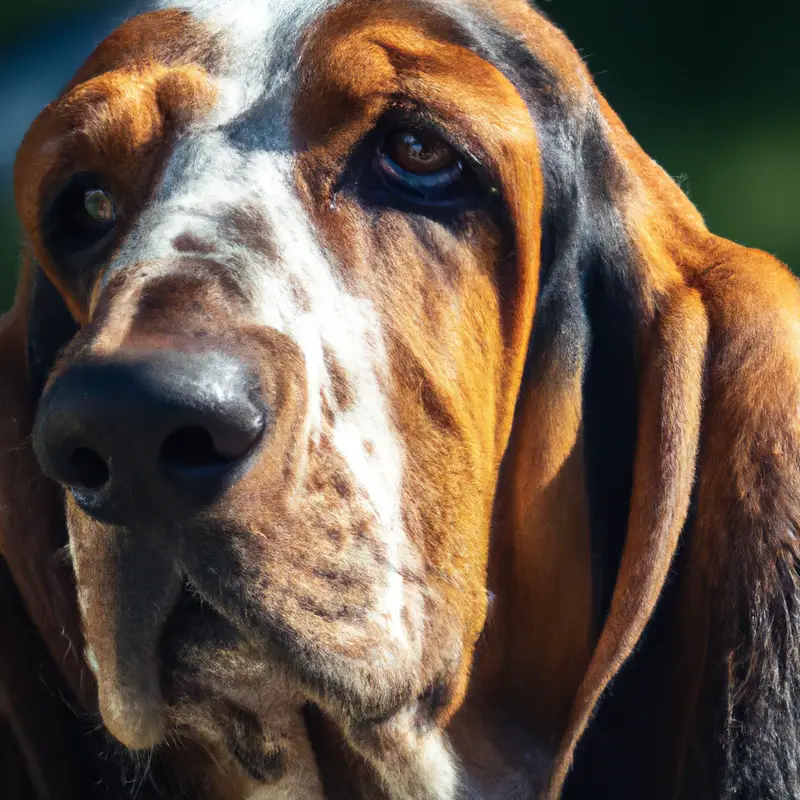
Common Behaviors of Basset Hounds Around Unfamiliar Animals
When it comes to the common behaviors of Basset Hounds around unfamiliar animals, there are a few things you should know. Basset Hounds are generally friendly and laid-back dogs, but they can sometimes display curiosity or caution when encountering new animals.
Some common behaviors you might observe include sniffing, tail wagging, barking, or even cautious retreat.
Each Basset Hound is unique, so their behavior may vary. It’s important to remember to supervise and monitor their interactions to ensure the safety of all animals involved.
Tips for Managing Basset Hound Behavior with Unfamiliar Animals
Gradual Introduction and Controlled Environments
Gradual introduction and controlled environments are key when it comes to managing a Basset Hound’s behavior around unfamiliar animals. Start by introducing your Basset Hound to new animals slowly and in a controlled setting.
This allows them to become familiar with the scent and presence of the other animal without feeling overwhelmed.
Keep interactions positive and reward good behavior. Additionally, it’s important to create a controlled environment by using leashes, fences, or barriers to prevent any aggression or unwanted behavior.
This ensures the safety of both your Basset Hound and the other animal.
Monitoring and Supervising Basset Hound Interactions
When it comes to monitoring and supervising your Basset Hound’s interactions with unfamiliar animals, there are a few key things to keep in mind. Firstly, always be present and attentive during these interactions to prevent any potential problems.
Secondly, establish clear boundaries and rules for your Basset Hound when interacting with other animals.
Thirdly, use positive reinforcement to reward good behavior and redirect any negative behaviors. It’s also important to seek professional help if needed.
Remember, your active involvement and guidance is crucial in ensuring safe and positive interactions for your Basset Hound.
Seeking Professional Help if Needed
If you’re having trouble managing your Basset Hound’s behavior around unfamiliar animals, seeking professional help can be a valuable option.
A professional dog trainer or animal behaviorist can provide expert guidance and support tailored to your specific situation.
They can assess your Basset Hound’s behavior, identify triggers, and develop a customized training plan.
Professional help can offer you the knowledge and techniques needed to address any underlying issues and improve your Basset Hound’s behavior around unfamiliar animals.
Final Verdict
Basset Hounds have a generally calm and friendly temperament, but their behavior around unfamiliar animals can vary depending on various factors.
Socialization and training play a crucial role in shaping their response to unfamiliar animals.
It is important to gradually introduce them to new animals in controlled environments and use positive reinforcement methods.
Monitoring and supervising their interactions is vital to prevent any potential conflicts.
Seeking professional help is recommended if behavioral issues arise.
By understanding their behavior and implementing appropriate strategies, we can create a harmonious environment for both our Basset Hounds and unfamiliar animals.

